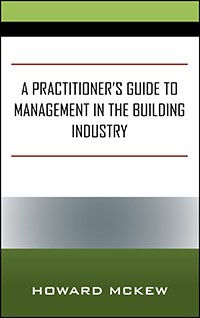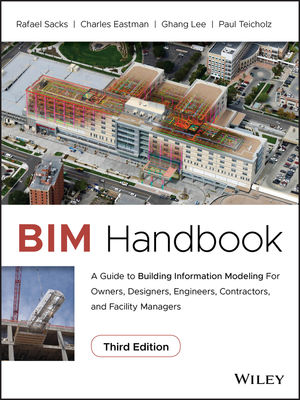Qualifications Needed
To qualify for the training plan, the individual needs to have some previous experience in hvac, plumbing, fire protection, and electrical and communication installation experience.For example, if the candidate doesn't know the difference between a constant-volume air-handling system, and a variable-volume air-handling system then an introduction course on these building systems needs to be developed before the student is qualified to begin the coordination of these MEC systems.
The goal is not to have the MEC coordinator become a design engineer, but she does need to know the purpose and/or design intent of the various building systems. She also needs to be knowledgeable of such coordination issues as hot water pipes pitch up, steam pipes pitch down, etc.
Additionally, there are very specific codes for plumbing and electrical, and communication distribution that should be color-coded and labeled like any other MEC distribution system. A good approach to passing this preparation stage of the MEC coordinator course would be a comprehensive multiple-choice test.
Training is Necessary
Moving on to training the MEC coordinator, I have, in the past, used a course titled "What's wrong with this picture?" to help educate individuals in what is right and/or wrong with the project to which they are assigned. This photo log is built around the contract specification sections where the text will clearly identify why the photo is correct or not correct.A picture is worth a 1,000 words when it comes to pointing out the rights and wrongs of field coordination. To implement such an agenda, the teacher can begin with the contract documents and peruse the special/supplementary conditions associated with Division 15000, 16000, and 17000. When independent building commissioning is part of the project, a review of those requirements must also be included into the photo log agenda.
It is worth noting that the first signs of an inept MEC coordinator is a lack of knowledge of specification criteria and making the mistake of demonstrating incompetence by stating that something isn't in the specification when most people in the room know differently. I have seen that happen on more occasions than I care to think about.
In training an MEC coordinator to be proficient in her job, it is good to work with her on the establishment of "tricks of the trade" that would apply specifically to her business (e.g., health care, educational, commercial industries). If an MEC coordinator works for a builder or design-builder that is very active in the commercial market and not the health care market, there is probably little need for her to be proficient in steam systems or special plumbing systems.
Helpful Hints
Here are three tricks-of-the-trade suggestions for an MEC coordinator: 1) create a pipe chart that indicates outside diameter based on the insulation thickness for quick coordination reference; 2) create a color code and label chart for all distribution systems, again as a quick coordination reference; and 3) establish at the onset of field coordination a standard MEC coordination drawing layering designation that can be used by the facility management staff after the project is done.In setting up CAD coordination standards, the MEC coordinator can routinely improve his master list by matching it up with the order-of-priorities/trades, as well as match it up with the needs of facility managers as it can now be coordinated into the client's computer-aided facility management software based on operational needs (e.g., regulatory inspections, emergency isolation valves).
Whether independent commissioning is required or not, the MEC coordinator should build her own standardized startup sheets (a.k.a., prefunctional or system-readiness documents). MEC coordinators who can pull pertinent startup sheets out of their "Coordinator Standards" manual will quickly differentiate themselves from all the other coordinators.
If you ask an MEC coordinator what a startup sheet contains and you get that "deer in the headlights" look, or you're simply told that the equipment manufacturer will provide these sheets, you can be assured you don't have the best MEC coordinator for your job.
The role of the MEC coordinator is probably one of the most important links between the design and the operation of the building systems. Equally important, the MEC coordinator is the most important link between commissioned building systems and high-performance infrastructure over the life of the systems. ES



